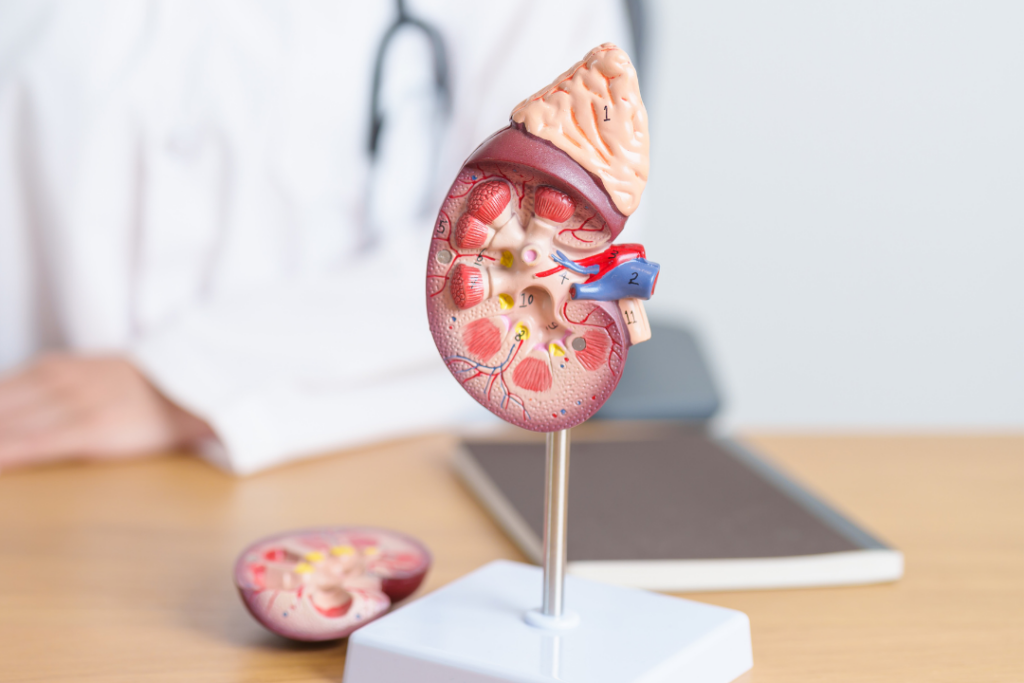Adrenal Disorders

Adrenal disorders involve abnormalities in the function of the adrenal glands, which are located above the kidneys and produce essential hormones that regulate metabolism, blood pressure, and stress response.
Types of Adrenal Disorders:
Cushing’s Syndrome: This condition occurs when the body is exposed to high levels of cortisol for extended periods. Symptoms may include weight gain, high blood pressure, diabetes, and easy bruising. It can be caused by an overproduction of cortisol or by taking corticosteroid medications.
Addison’s Disease: Addison’s disease is characterized by insufficient production of cortisol and often aldosterone by the adrenal glands. Symptoms can include fatigue, weight loss, low blood pressure, and skin darkening. It may result from autoimmune damage to the adrenal glands.
Adrenal Insufficiency: This condition arises when the adrenal glands do not produce enough hormones. It can be acute or chronic and is often associated with Addison’s disease. Symptoms include severe fatigue, muscle weakness, and low blood pressure.
Adrenal Hyperplasia: This is a genetic disorder where the adrenal glands are enlarged and produce excess hormones. It can lead to problems such as early puberty, infertility, and excessive hair growth.
Diagnosis and Treatment: Diagnosing adrenal disorders typically involves blood tests, imaging studies, and sometimes hormone stimulation tests. Treatment depends on the specific disorder and may include hormone replacement therapy, medications to manage hormone levels, or surgery in some cases.
Proper management of adrenal disorders is crucial for maintaining overall health and well-being. Regular monitoring and working with a healthcare provider can help manage symptoms and prevent complications.
